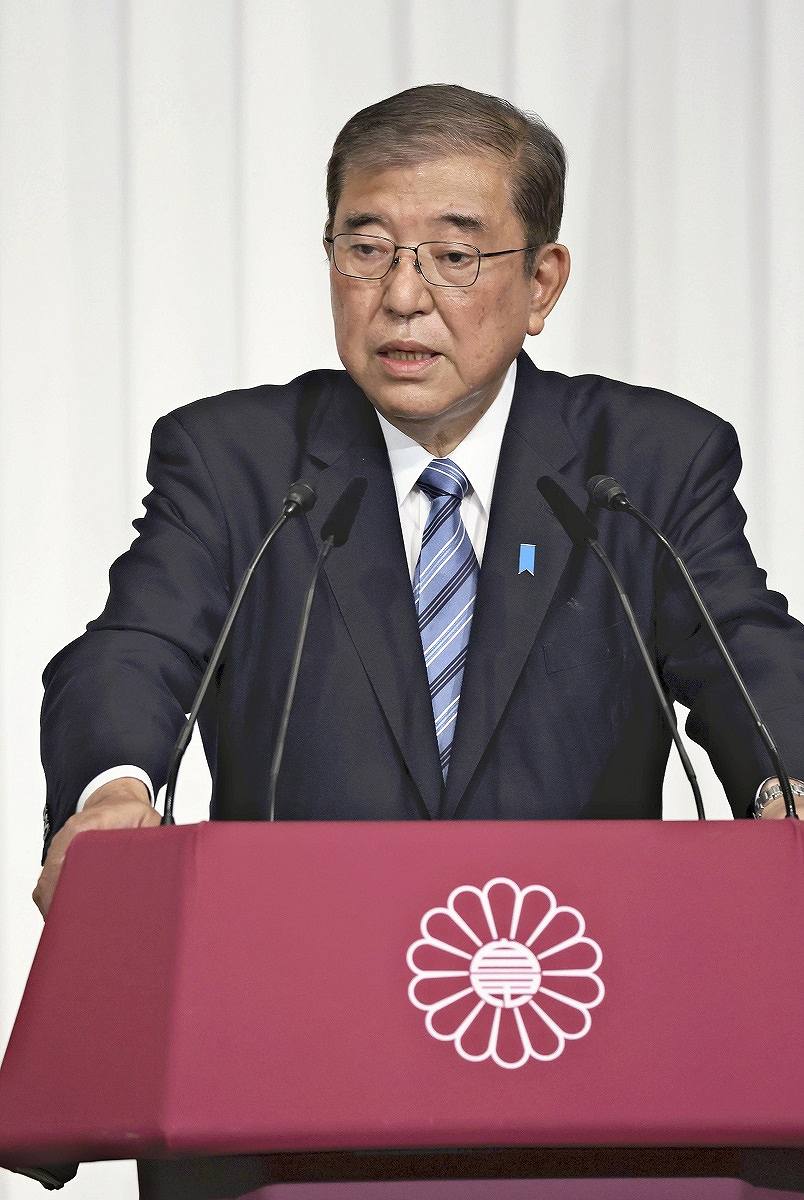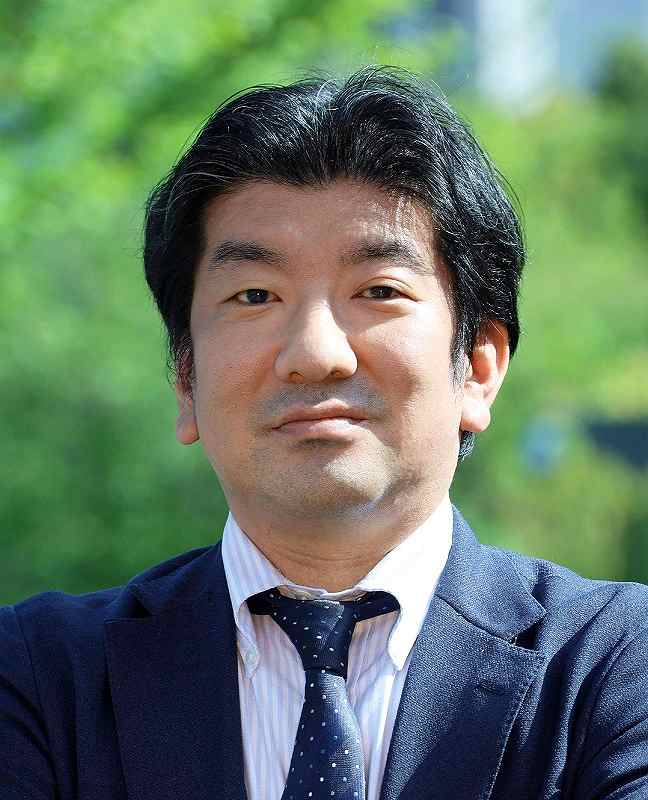Japan’s Weakened New Leader Faces Challenges Abroad; PM Ishiba Has A Tricky ‘Month of Diplomacy’ Ahead

Prime Minister Shigeru Ishiba holds a press conference on Oct. 28 at the Liberal Democratic Party’s headquarters in Tokyo.
8:00 JST, November 2, 2024
Japan’s foreign policy faces trying times. Amid an increasingly uncertain international situation, the ruling Liberal Democratic Party and Komeito failed to retain a majority of seats in the House of Representatives elections, making political turmoil inevitable. A senior government official commented: “Japan has been one of the Group of Seven countries with political stability. If the outlook of the domestic political situation becomes uncertain, it will inevitably affect diplomacy.”
Before the lower house election, an aide to Prime Minister Shigeru Ishiba had expressed Ishiba’s desire to begin a “diplomatic season” in November.
However, the election results were more severe than expected, forcing the prime minister to face the diplomatic agenda while seeking at least short-term domestic political stability.
In mid-November, the Asia-Pacific Economic Cooperation (APEC) meeting is scheduled to be held in Peru, and the summit meeting of the Group of 20 is scheduled to be held in Brazil. Ishiba has expressed his willingness to attend both meetings, but the prime minister would have to depart immediately after the special Diet session. A senior Foreign Ministry official said, “I’m afraid the prime minister won’t have enough time to prepare for those meetings.”
In connection with the APEC meeting, Ishiba is also coordinating his first Japan-China summit meeting with Chinese President Xi Jinping. Ishiba met with Chinese Premier Li Qiang last month at an ASEAN-related summit in Laos, but a senior government official said that Japan cannot advance its policy toward China unless it opens a channel with Xi, who holds highly concentrated power.
As China wants investment from foreign countries because of its currently stagnant domestic economy, it is said to be eager to hold summits. This could be a good opportunity for Ishiba to initiate the first dialogue. However, it is not enough for China and Japan to simply hold talks, as the two countries have many pending issues. Ishiba needs to prepare carefully and leave no room for Xi to take advantage of him because of Ishiba’s weak domestic political base.
In addition, the prime minister should give top priority to the stabilization of the Japan-U.S. alliance. In the U.S. presidential election to be held on Nov. 5, the Democratic candidate, Vice President Kamala Harris, and the Republican candidate, former President Donald Trump, are competing fiercely. The winner will be inaugurated as the next president in January next year, but the prime minister said he “will not rule out the possibility” of a visit to the U.S. during November, with a view to realizing a meeting before the official inauguration.
If Trump, who is reluctant to work with allies and like-minded countries, returns, multilateral frameworks such as the North Atlantic Treaty Organization and trilateral cooperation among Japan, the United States and South Korea could stall, and support for Ukraine and cooperation to counter China and North Korea could waver. Japan is expected to play a role in contributing to the stabilization of those cooperative arrangements. There are also concerns about the impact on the Japan-U.S. alliance, such as a resurgence of the issue of Japan’s share of the cost of stationing U.S. troops in Japan.
It is unclear whether Ishiba will be able to build a personal relationship of trust with Trump, as then Prime Minister Shinzo Abe did during Trump’s previous administration. In a debate during the LDP presidential election in September, Ishiba asserted: “No matter who is president, it is no different to logically explain that the U.S. bases in Japan are fulfilling a role in the U.S. global strategy.”
A senior Foreign Ministry official expressed concern that “it is hard to believe that the logic-driven Prime Minister Ishiba and Trump, who values intuition, would be a good match.” A veteran LDP lawmaker who knows Trump well said, “The fact that Ishiba had a bad relationship with Abe is probably a negative for building a relationship and if Trump will not see Ishiba as a strong leader, building the relationship becomes more difficult.”
At a press conference on Oct. 28, Ishiba said: “We will further strengthen our ties with the United States. The U.S. presidential election will be held next week, and regardless of which candidate wins, we will maintain the current extremely good Japan-U.S. relationship and work together to strengthen the free and open international order. Naturally, we will also continue to engage in dialogue with our neighbors. In diplomacy, there is no time to waste.”
Within the LDP, there are simmering calls for the prime minister to take responsibility for the heavy defeat in the lower house election and resign. If his domestic political base remains weak, there will be no momentum for summit diplomacy. If the destabilization of the domestic political situation has a negative impact on diplomacy, authoritarian states could triumph. Ishiba will be forced to undertake a difficult “two-pronged strategy” of stabilizing his political base and implementing his policies domestically while also working to stabilize international affairs. Unless he is able to establish such a path, his legitimacy as prime minister will be further shaken.
Political Pulse appears every Saturday.

Michitaka Kaiya
Michitaka Kaiya is a staff writer in the Political News Department of The Yomiuri Shimbun.
Top Articles in Editorial & Columns
-

Riku-Ryu Pair Wins Gold Medal: Their Strong Bond Leads to Major Comeback Victory
-

40 Million Foreign Visitors to Japan: Urgent Measures Should Be Implemented to Tackle Overtourism
-

China Provoked Takaichi into Risky Move of Dissolving House of Representatives, But It’s a Gamble She Just Might Win
-

University of Tokyo Professor Arrested: Serious Lack of Ethical Sense, Failure of Institutional Governance
-

Policy Measures on Foreign Nationals: How Should Stricter Regulations and Coexistence Be Balanced?
JN ACCESS RANKING
-

Japan PM Takaichi’s Cabinet Resigns en Masse
-

Japan Institute to Use Domestic Commercial Optical Lattice Clock to Set Japan Standard Time
-

Israeli Ambassador to Japan Speaks about Japan’s Role in the Reconstruction of Gaza
-

Man Infected with Measles Reportedly Dined at Restaurant in Tokyo Station
-

Videos Plagiarized, Reposted with False Subtitles Claiming ‘Ryukyu Belongs to China’; Anti-China False Information Also Posted in Japan























